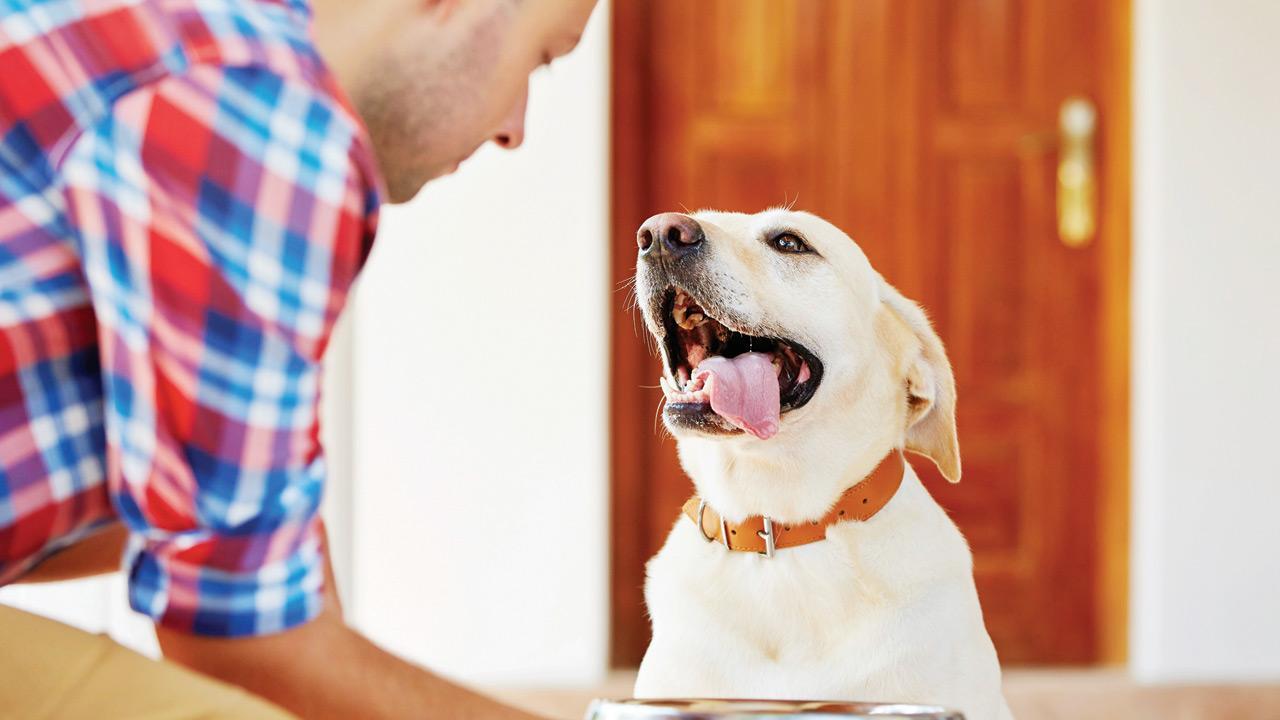Home / Mumbai-guide / Things To Do / Article /
A big, fat problem
Updated On: 22 June, 2021 08:54 AM IST | Mumbai | Anindita Paul
Obesity is a silent killer for pets, recently compelling one pooch to undergo laparoscopic sleeve gastrectomy. A veterinarian shares how you can keep your pets at a healthy weight

Balanced meals and controlled portion sizes are key to preventing obesity in pets. Representation pic
Last week, mid-day had reported about an overweight dog, Deepika, undergoing laparoscopic sleeve gastrectomy, a procedure typically reserved for human beings, to help bring her weight under control. Studies indicate that as many as 60 per cent of all pet dogs are overweight and half of those are clinically obese. As is the case with human beings, obesity in dogs can result in a host of medical complications including joint disease, a predisposition to metabolic disorders and chronic inflammation. Worryingly, it can also affect their longevity. The good news is that obesity is both preventable and reversible, if pet parents take a few timely measures, explains Dr Shiwani Tandel, a veterinarian at Prabhadevi-based Phoenix Veterinary Specialty.
Dr. Shiwani Tandel



